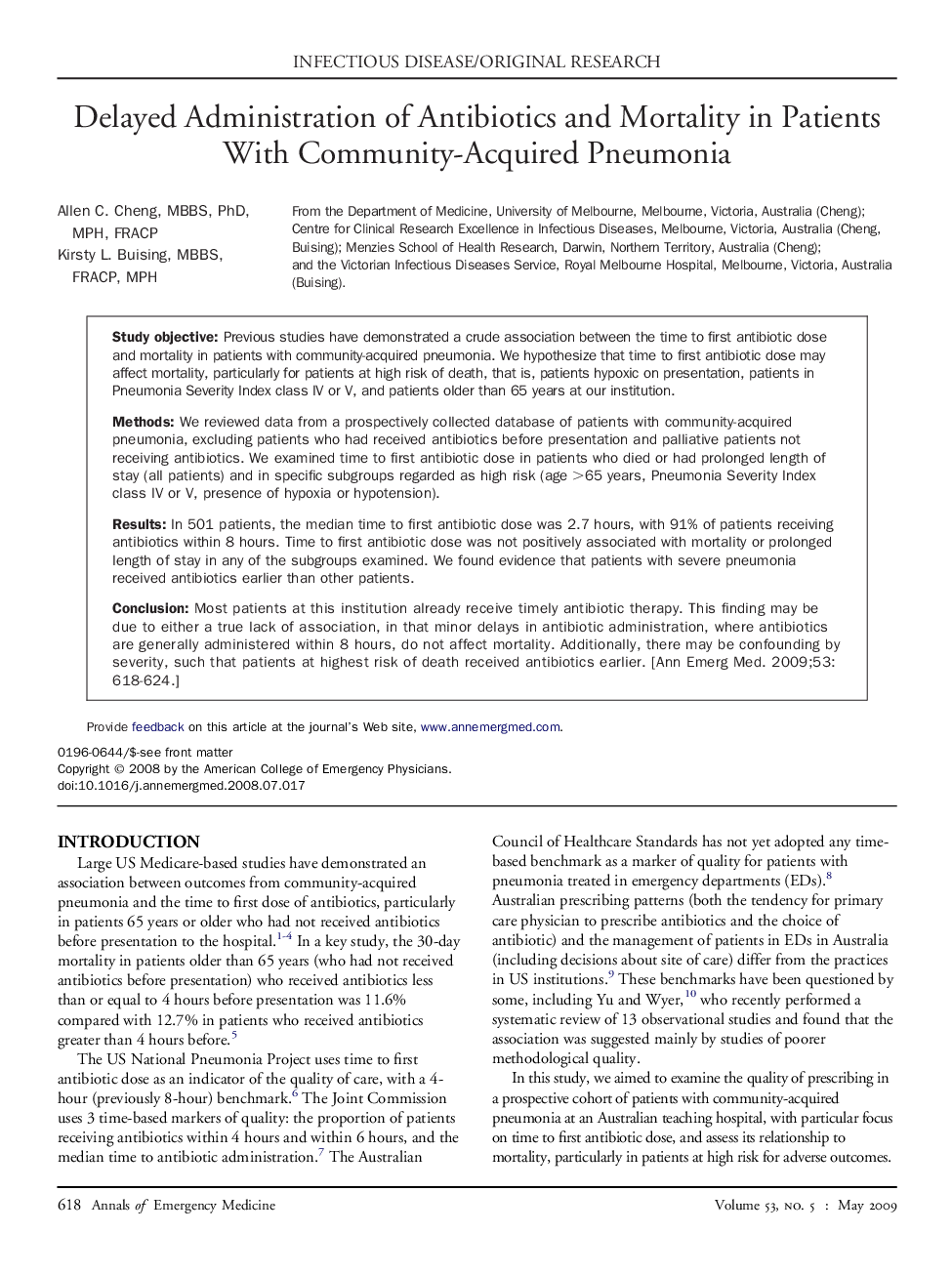| Article ID | Journal | Published Year | Pages | File Type |
|---|---|---|---|---|
| 3232236 | Annals of Emergency Medicine | 2009 | 7 Pages |
Study objectivePrevious studies have demonstrated a crude association between the time to first antibiotic dose and mortality in patients with community-acquired pneumonia. We hypothesize that time to first antibiotic dose may affect mortality, particularly for patients at high risk of death, that is, patients hypoxic on presentation, patients in Pneumonia Severity Index class IV or V, and patients older than 65 years at our institution.MethodsWe reviewed data from a prospectively collected database of patients with community-acquired pneumonia, excluding patients who had received antibiotics before presentation and palliative patients not receiving antibiotics. We examined time to first antibiotic dose in patients who died or had prolonged length of stay (all patients) and in specific subgroups regarded as high risk (age >65 years, Pneumonia Severity Index class IV or V, presence of hypoxia or hypotension).ResultsIn 501 patients, the median time to first antibiotic dose was 2.7 hours, with 91% of patients receiving antibiotics within 8 hours. Time to first antibiotic dose was not positively associated with mortality or prolonged length of stay in any of the subgroups examined. We found evidence that patients with severe pneumonia received antibiotics earlier than other patients.ConclusionMost patients at this institution already receive timely antibiotic therapy. This finding may be due to either a true lack of association, in that minor delays in antibiotic administration, where antibiotics are generally administered within 8 hours, do not affect mortality. Additionally, there may be confounding by severity, such that patients at highest risk of death received antibiotics earlier.
